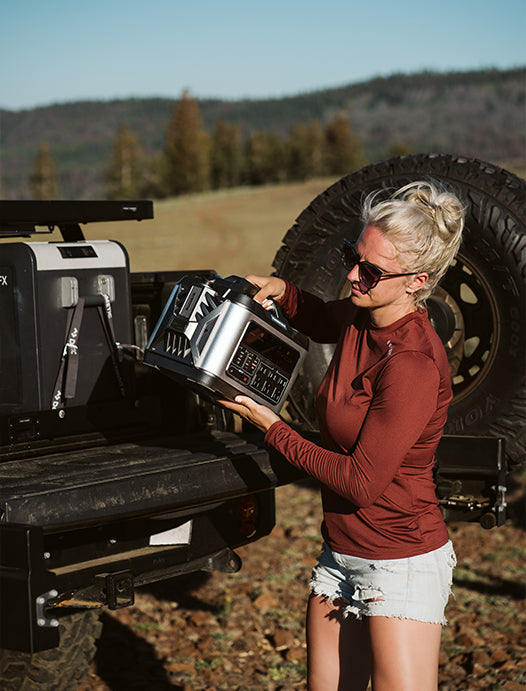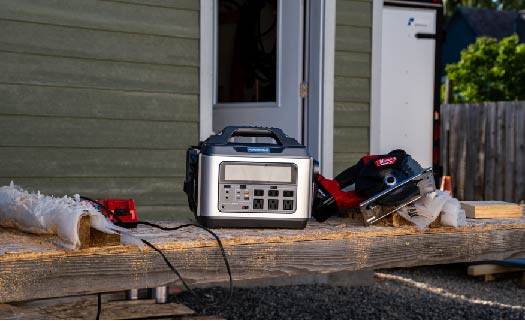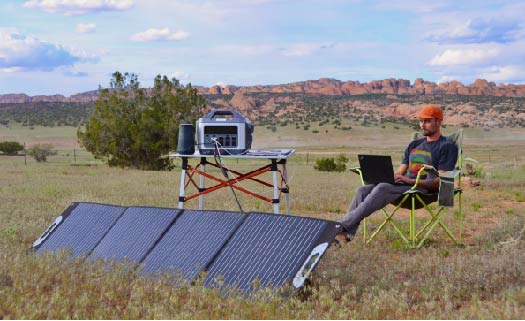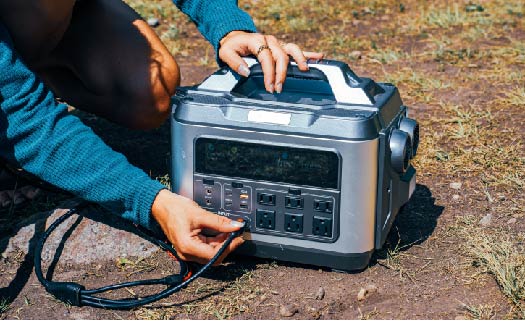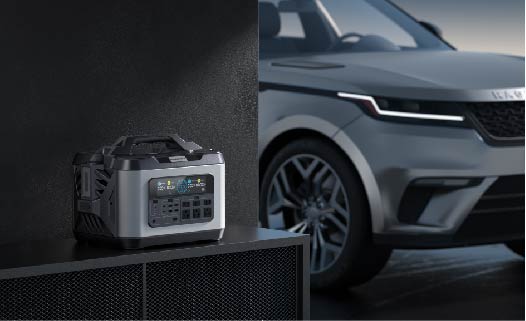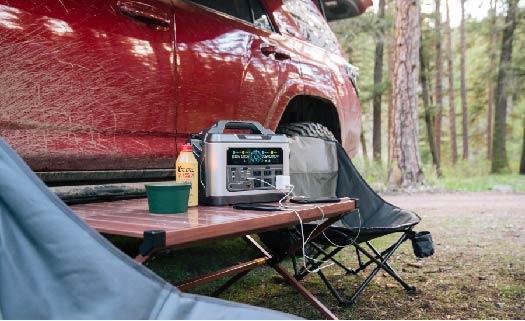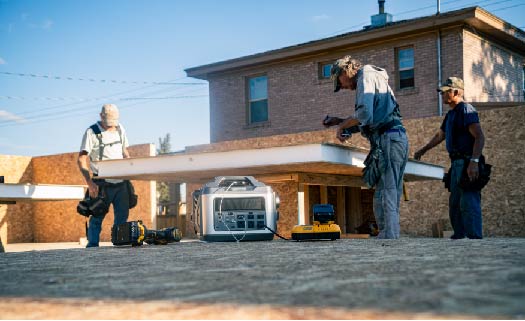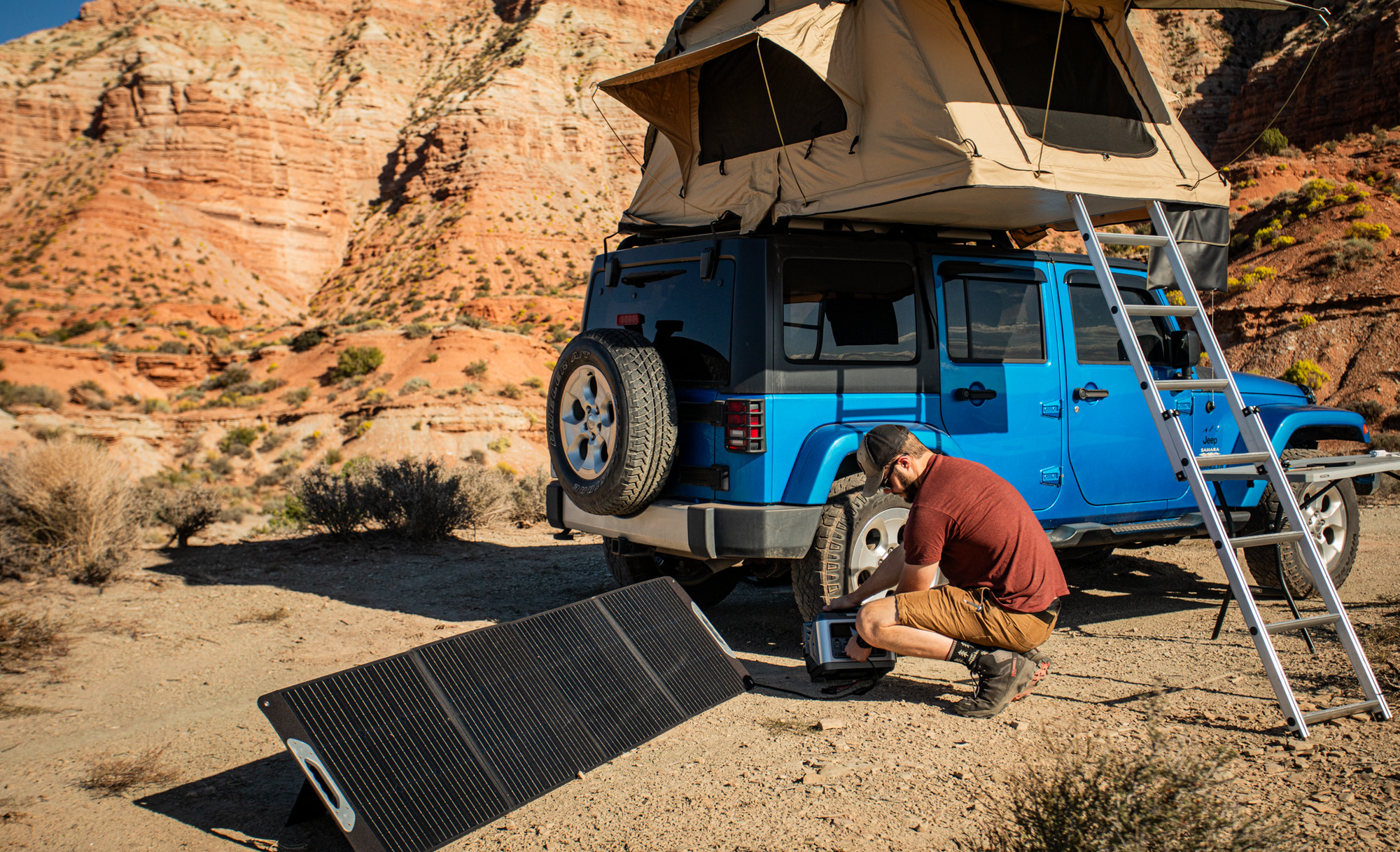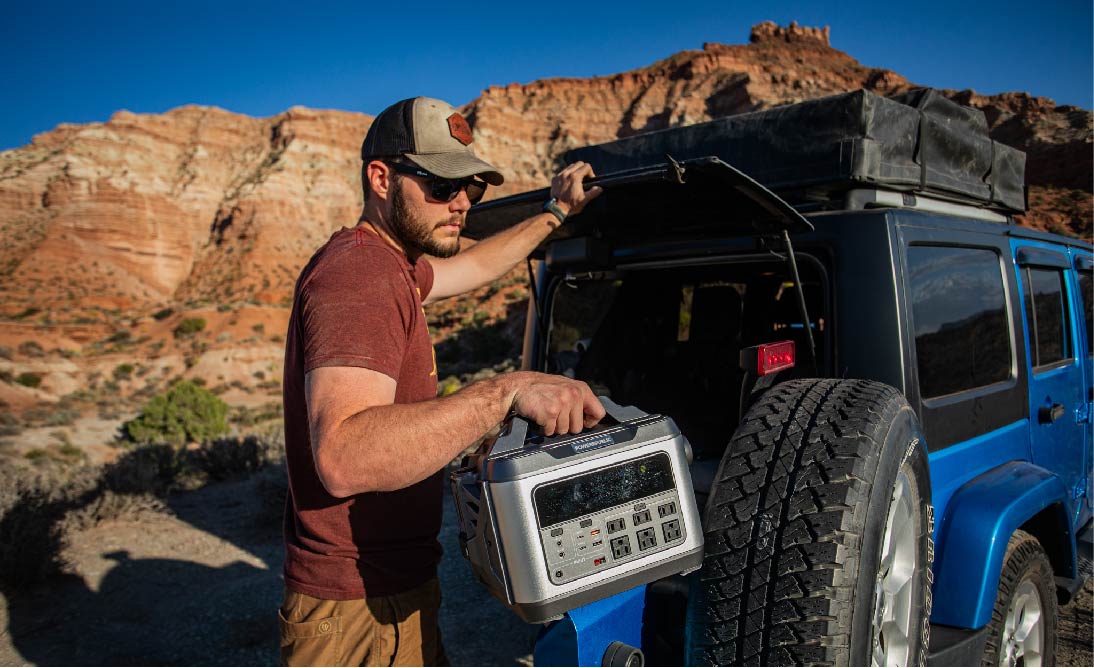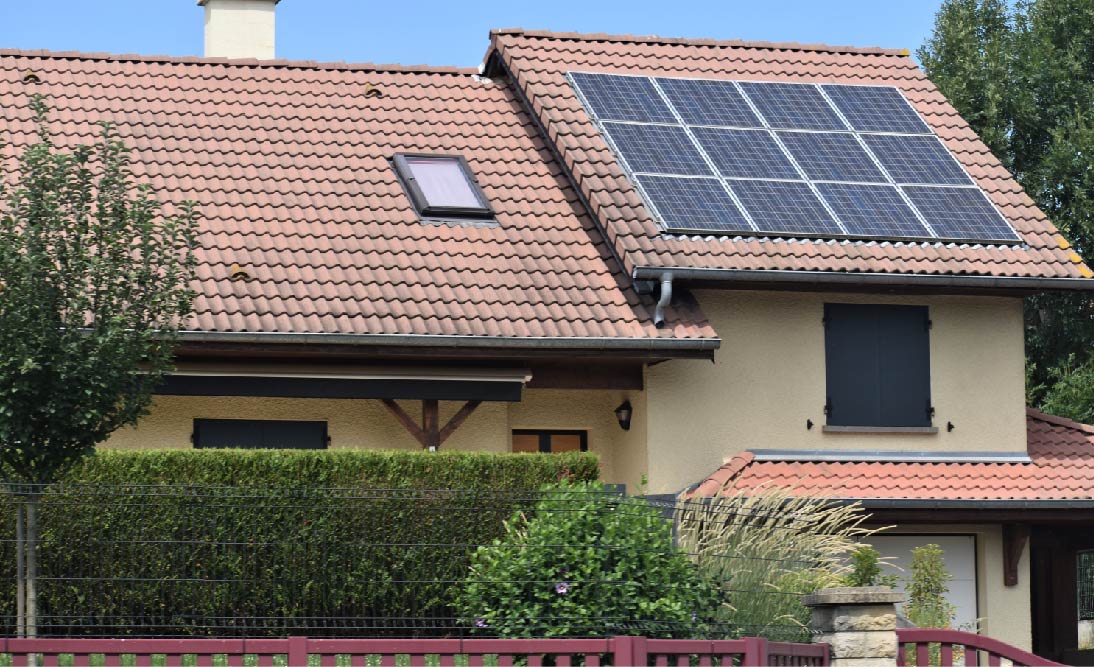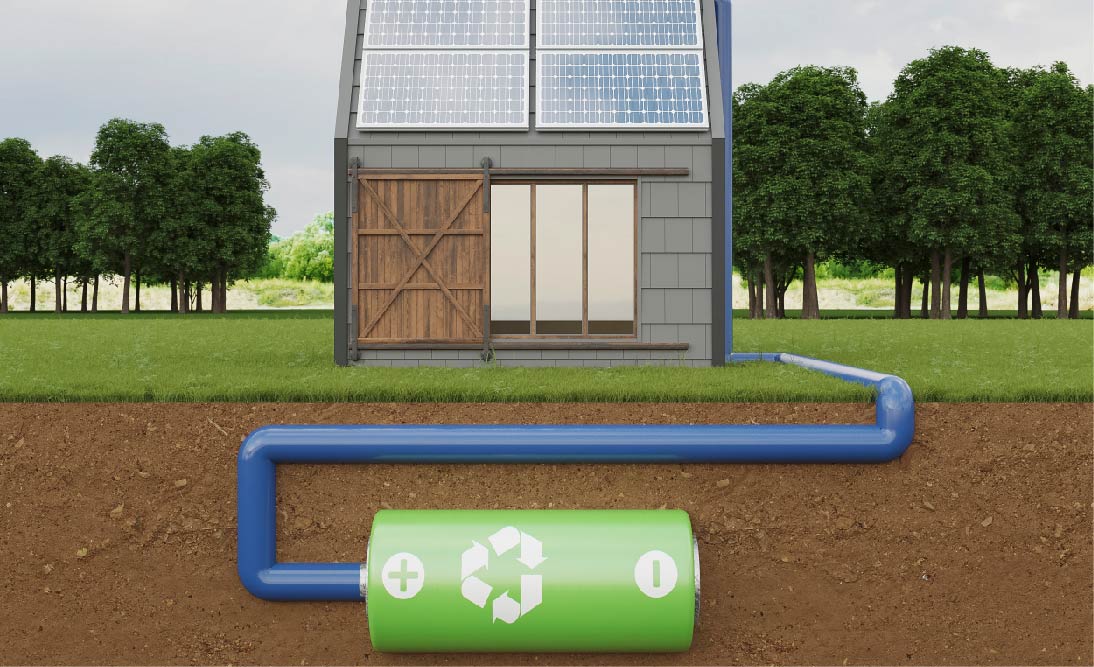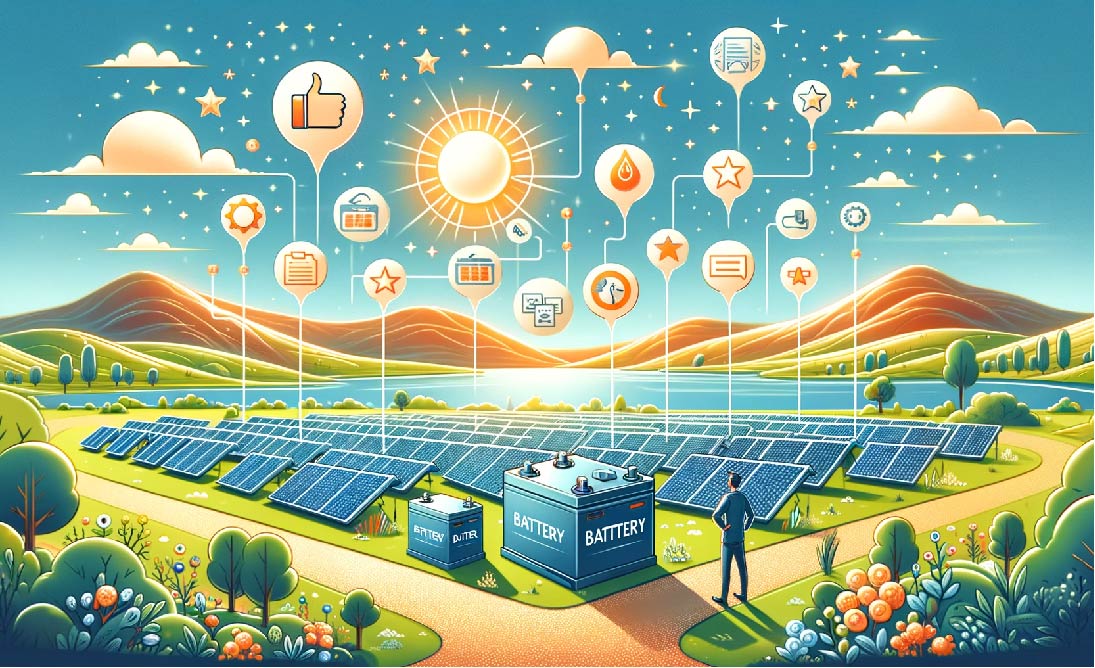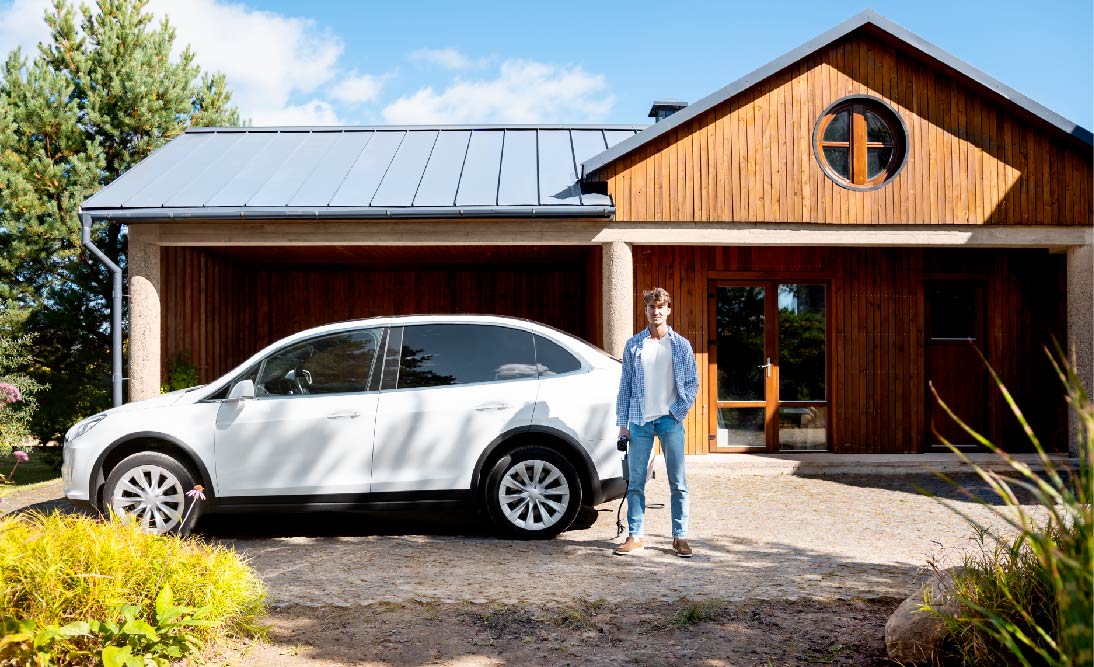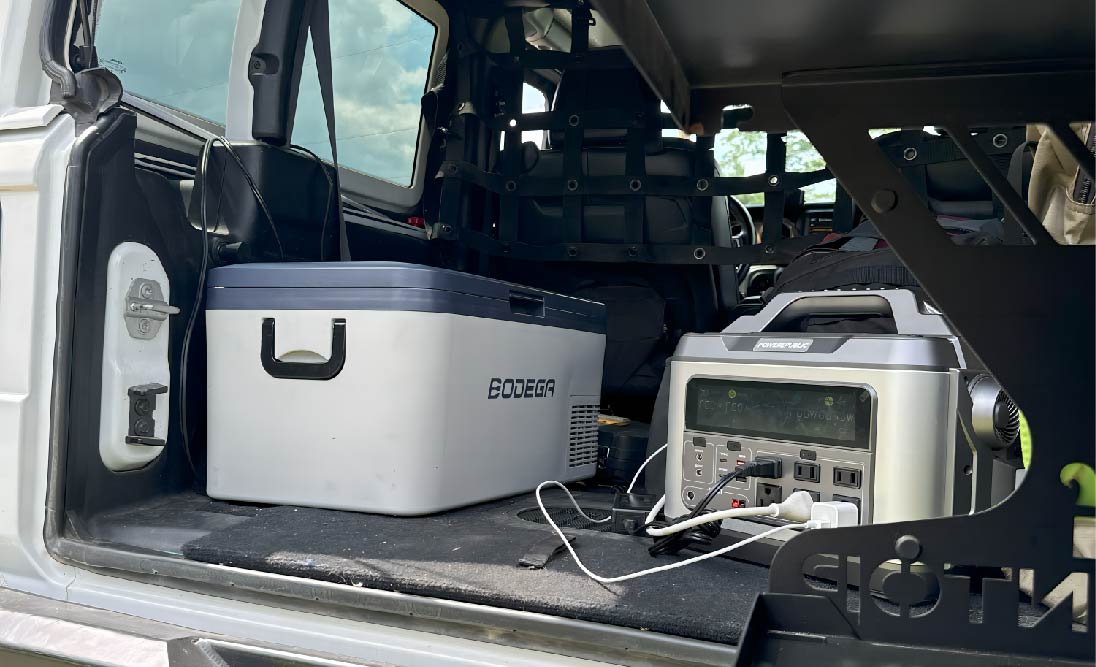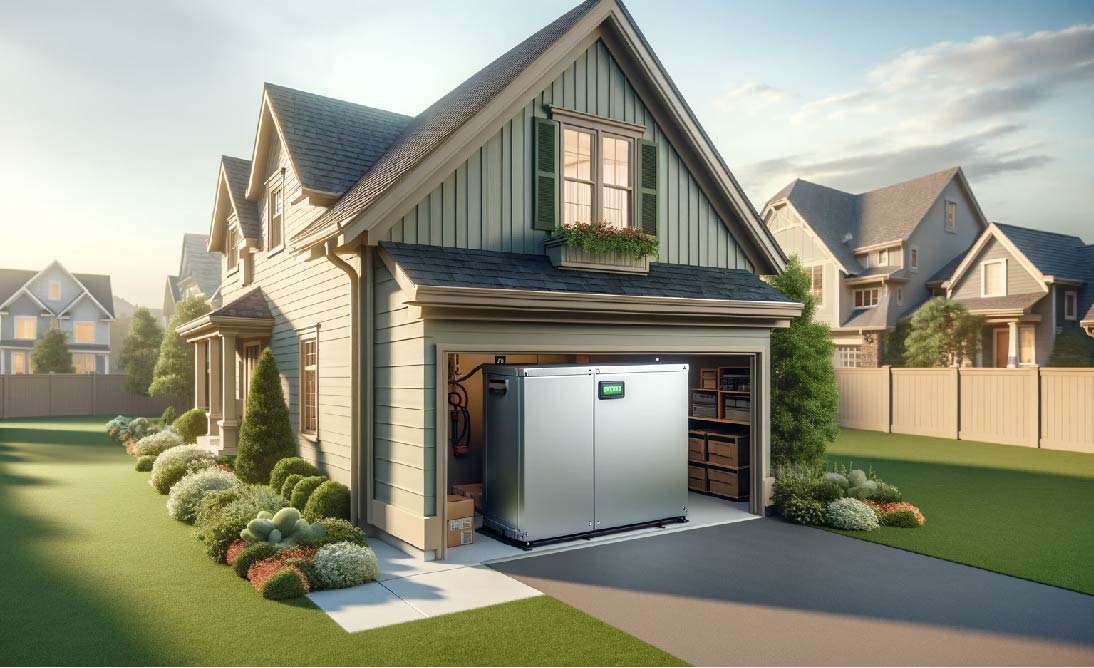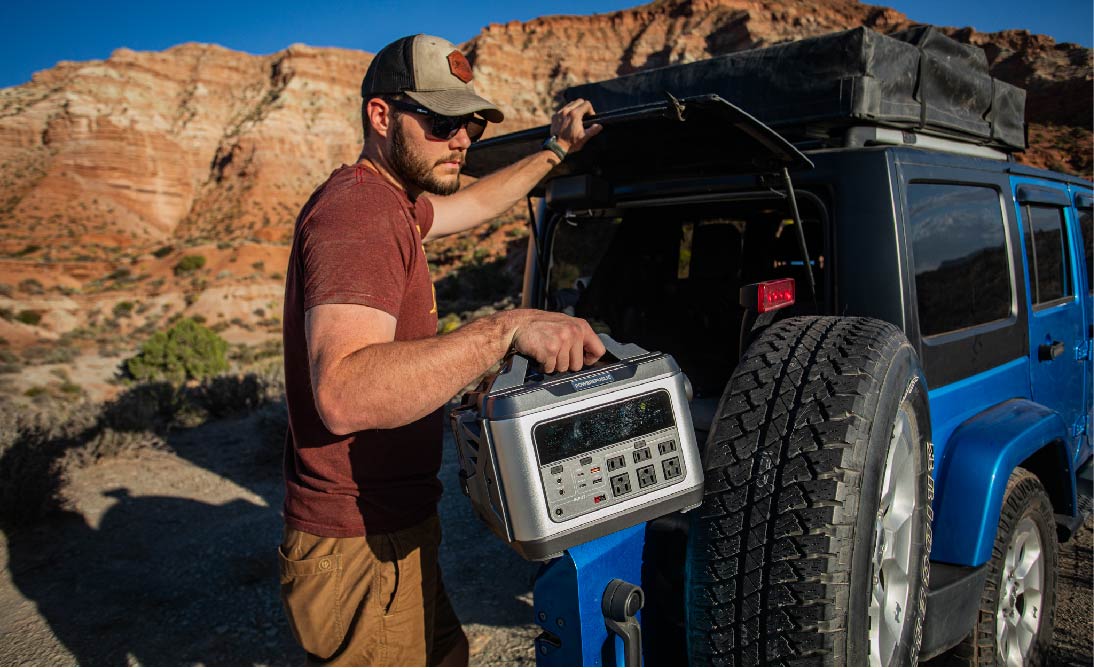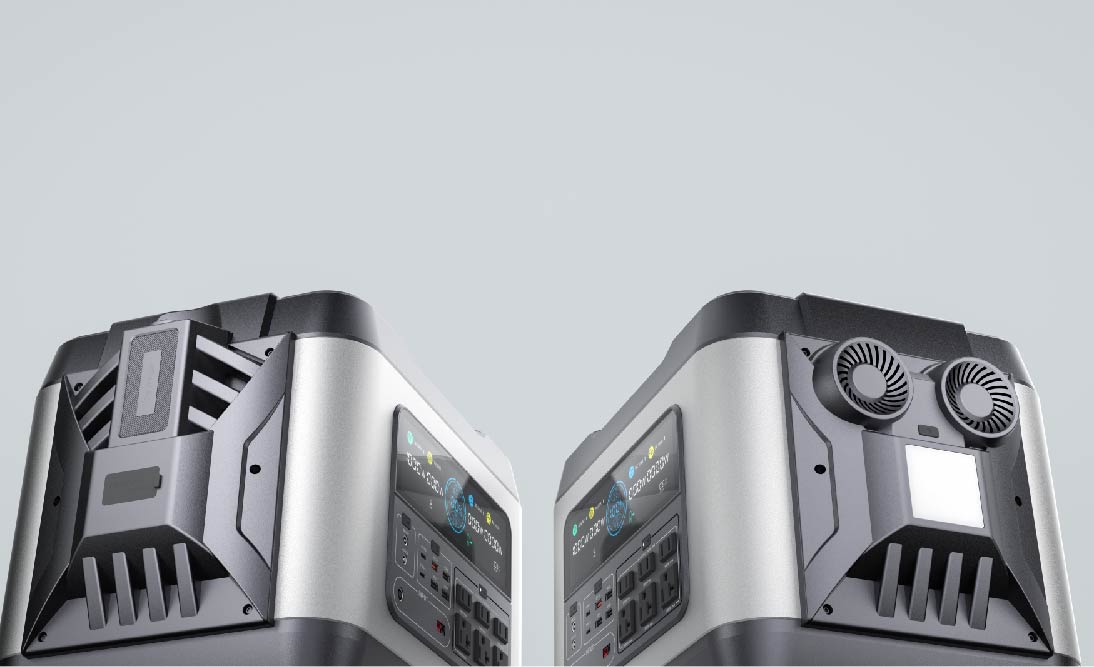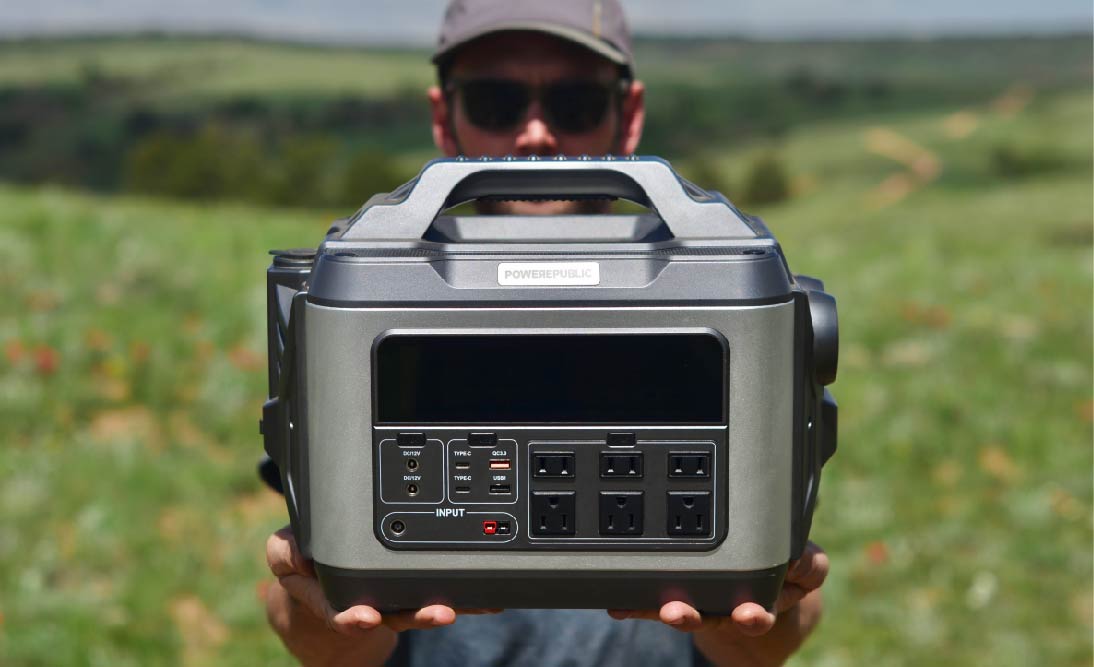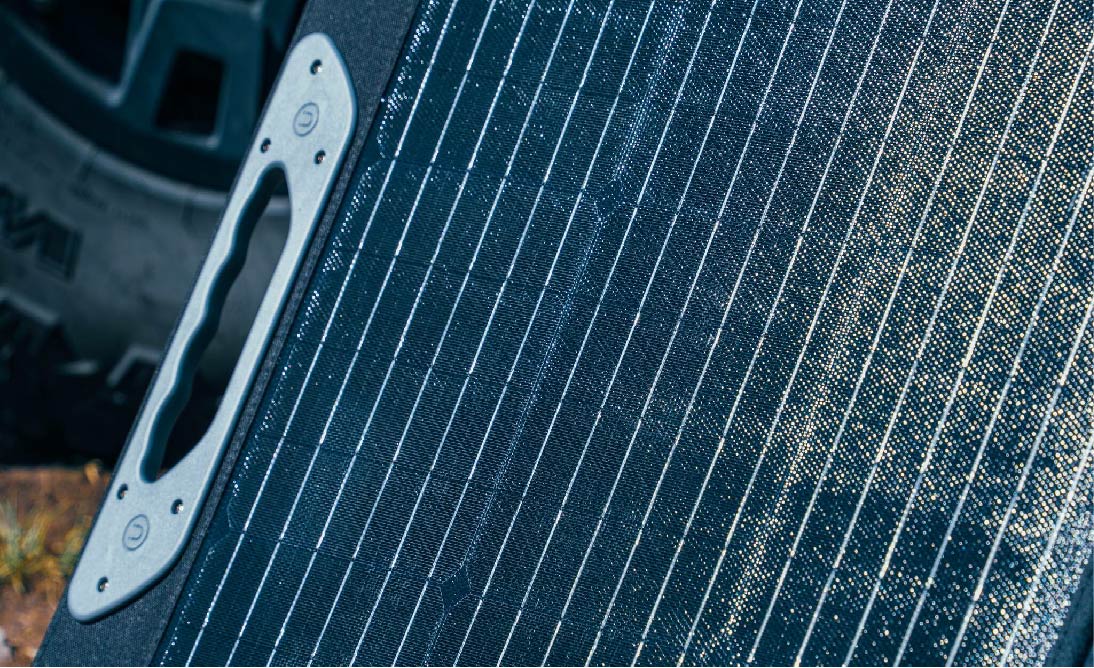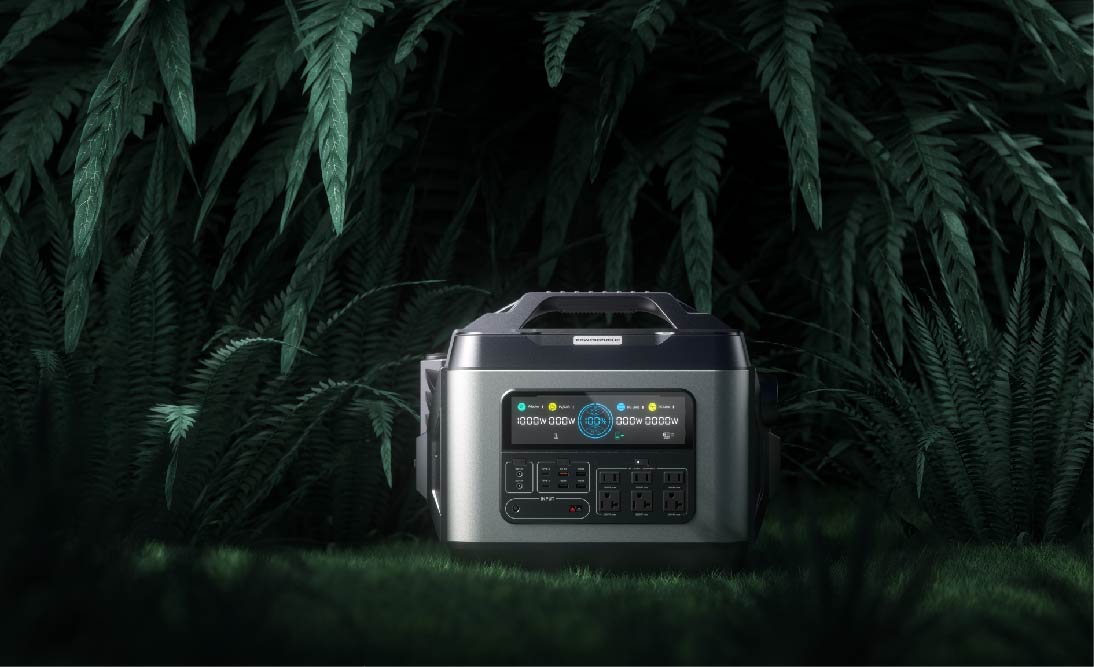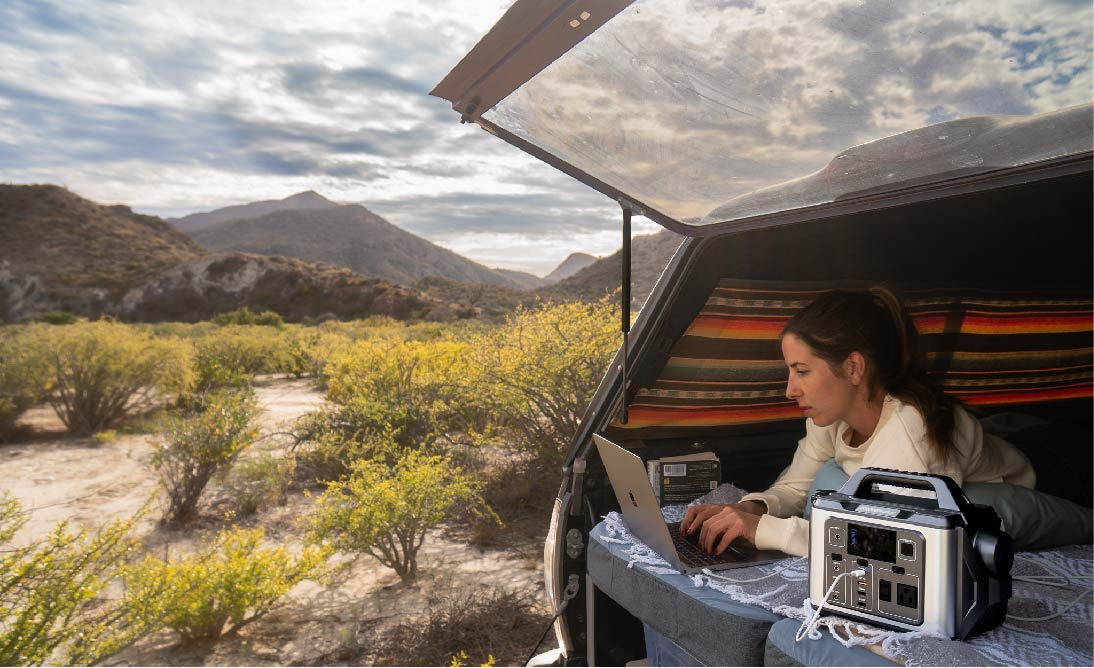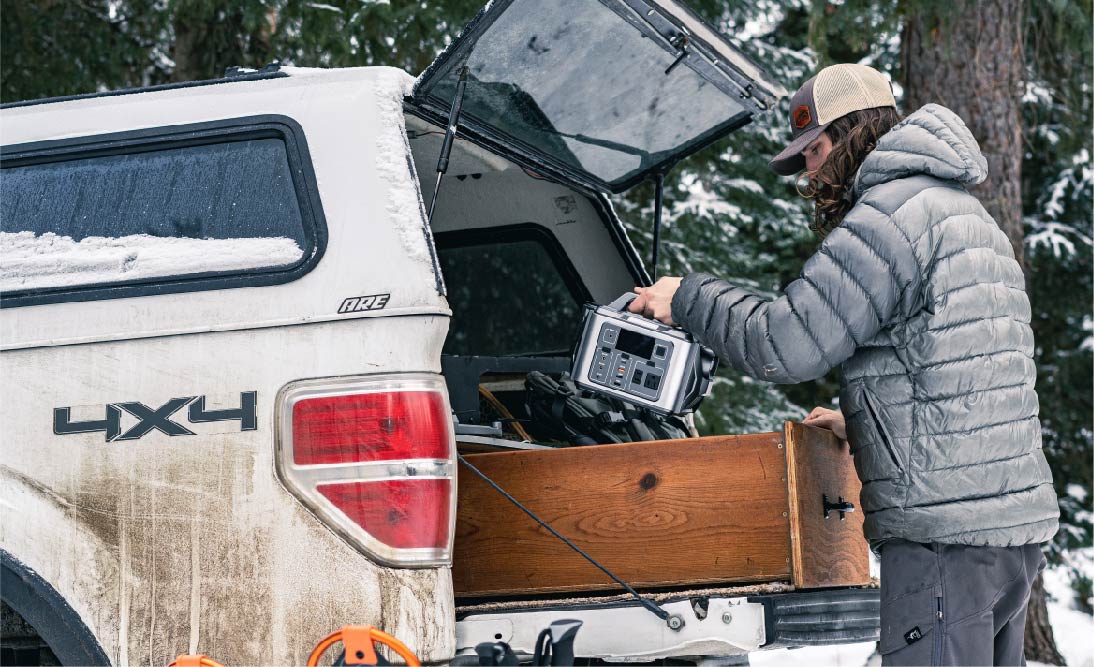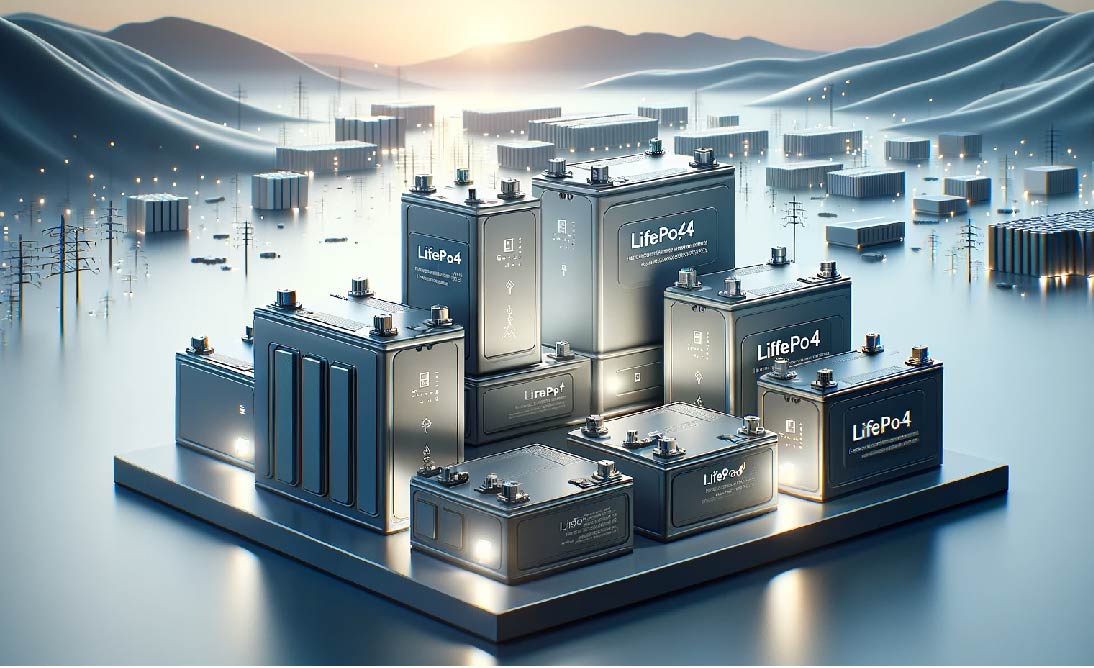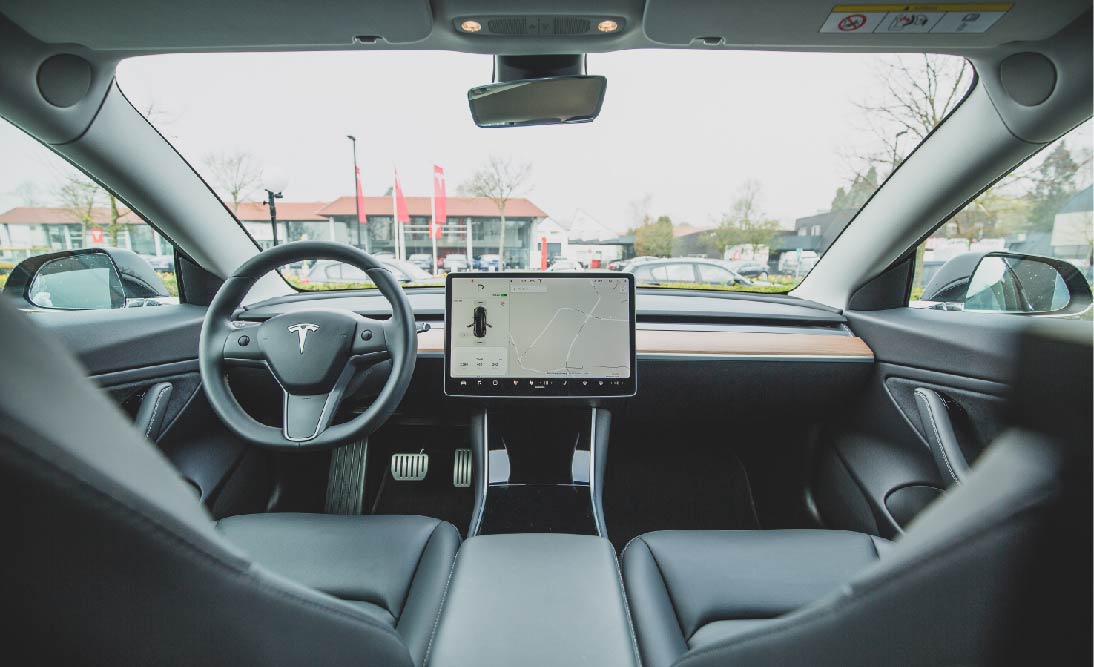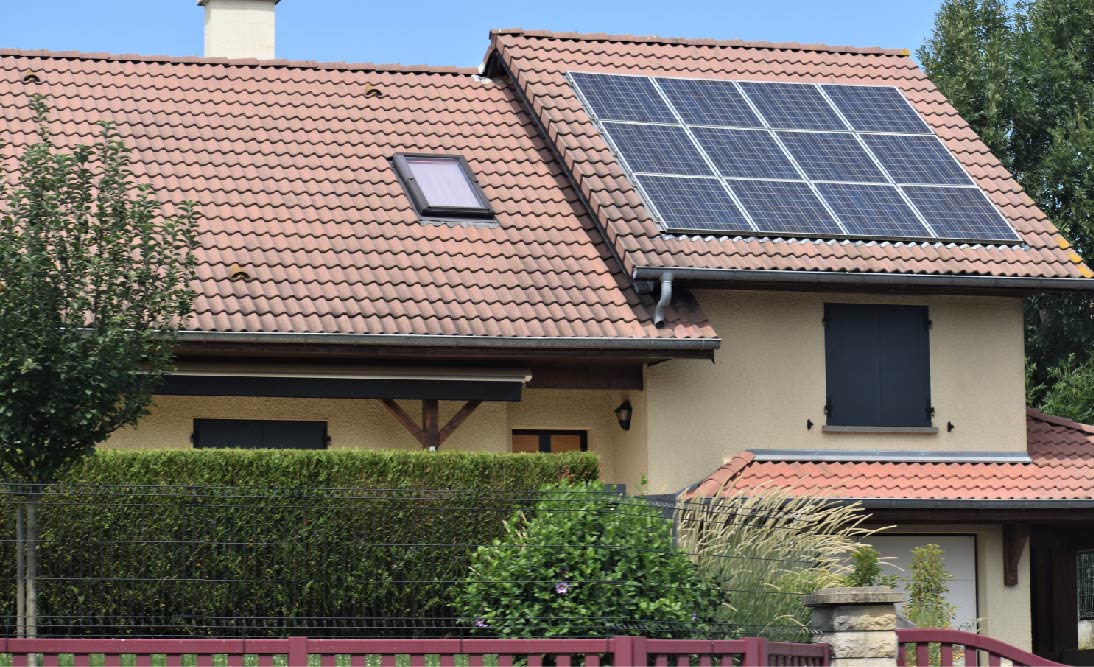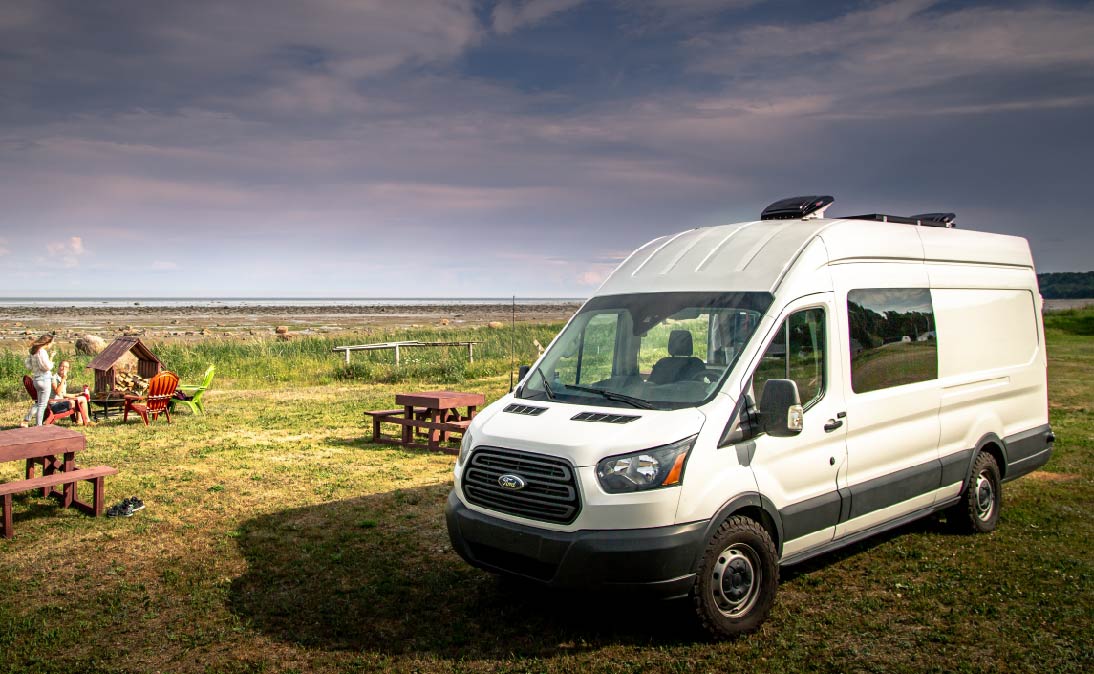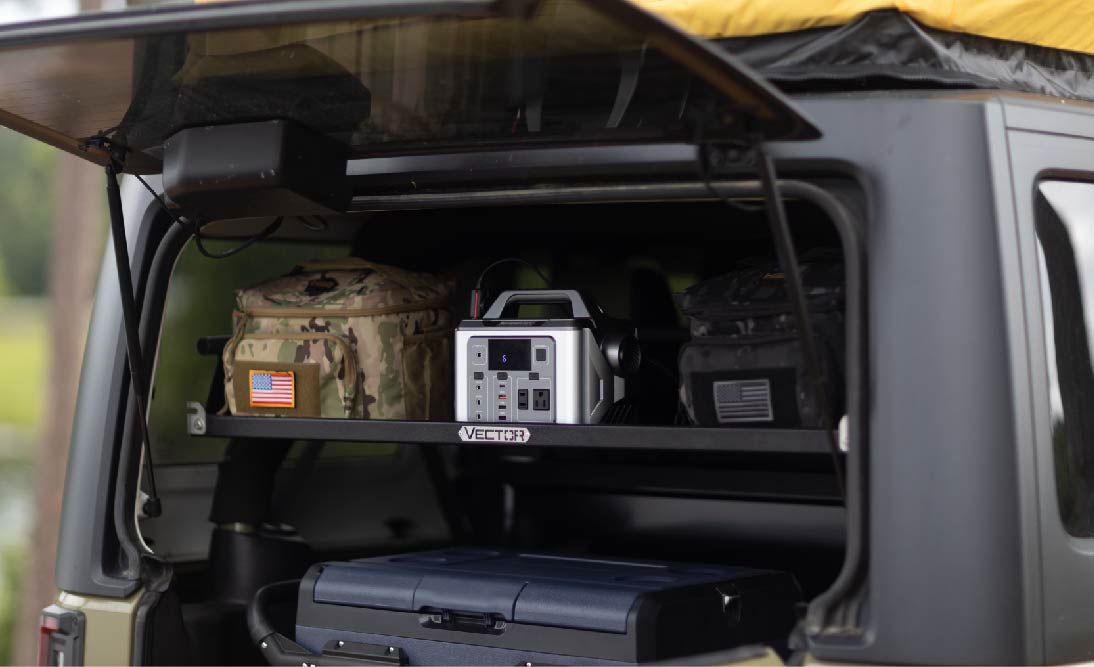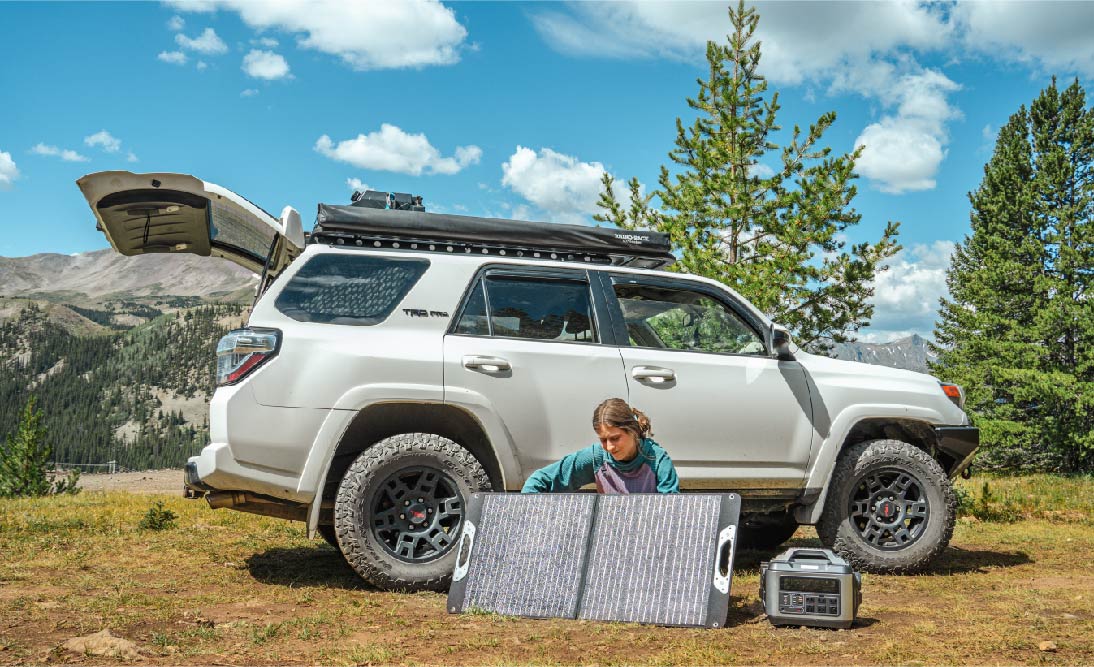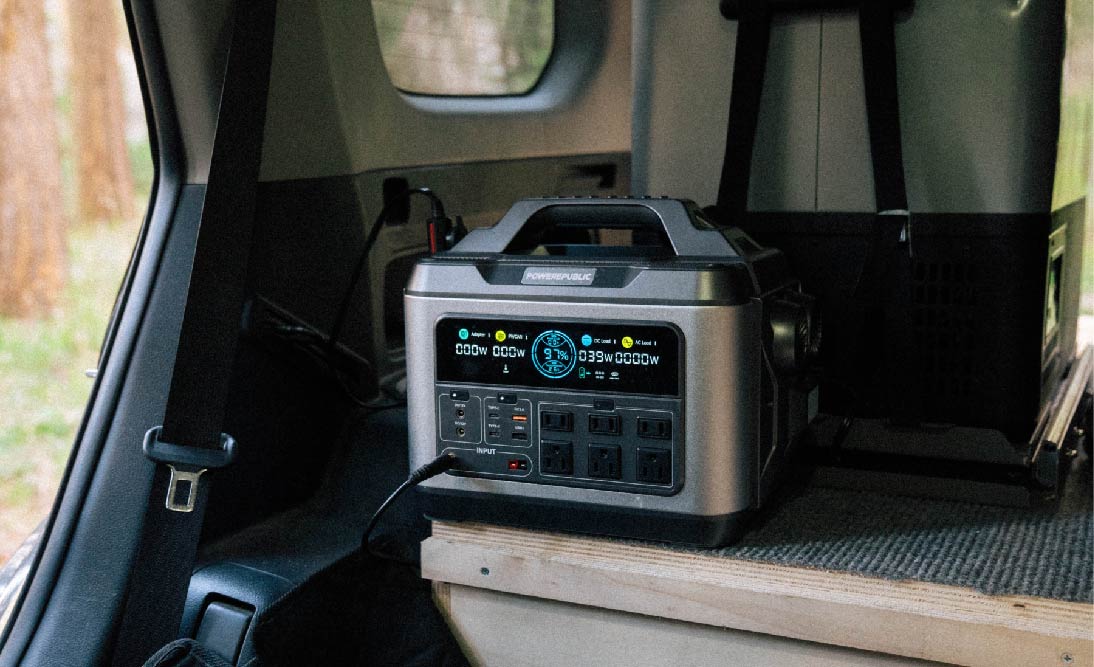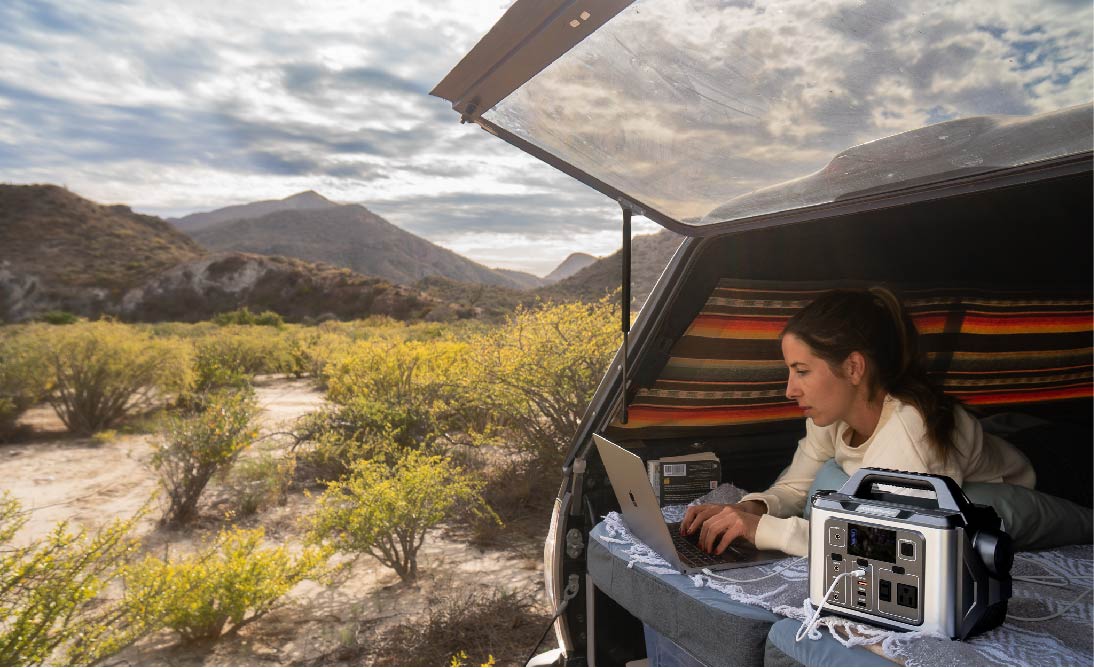Table Of Contents:
In our fast-paced world, access to electricity while on the move is vital. Choosing between Inverter generators and portable power stations is getting popular among outdoor enthusiasts as well. This guide explores both power sources, explaining their operation and outlining their advantages and disadvantages. By the end, you'll be well-informed to make the right choice and ensure a steady power supply wherever you go.
Inverter Generators

Their primary job is to generate electricity that's safe and stable for various devices and gadgets. Most inverter generators are lightweight, compact, and efficient. Unlike traditional generators that function at a fixed speed, no matter how much power you need, inverter generators are clever. They can change their speed to fit what you're using, which helps them save fuel, run quietly, and provide power that won't harm delicate electronics.
How Do They Function?

Inverter generators function in the following steps to create electricity that's stable and reliable.
AC Power Generation: The engine inside the generator starts by making something called AC power (alternating current). This is the kind of electricity that's used in most of our devices.
Conversion to DC: After making AC power, the generator changes it into DC power (direct current) with the help of a device called a rectifier. This step is necessary because the electricity needs to be in a different form before it can become really clean and stable.
Back to AC with Inverter: Finally, the generator turns the direct current(DC) into an alternative current(AC) to ensure the electricity coming out of the generator is clean and steady, just like what you get from your home's electrical outlets.
Pros and Cons Of Inverter Generators

Pros
-
Reliable and Clean Electricity: Inverter generators are renowned for their ability to provide a steady and clean supply of electrical power. Unlike traditional generators that may produce electrical fluctuations, inverter generators maintain a consistent voltage and frequency. This means the electricity they generate is safe for all kinds of electronic devices, ranging from laptops and smartphones to crucial medical equipment. With an inverter generator, you can rest assured that your valuable gadgets won't suffer damage due to unstable power.
-
Convenient Portability: Inverter generators are deliberately designed with portability in mind. They are typically compact and lightweight, making them easy to transport. Some models come equipped with ergonomic handles and wheels, further enhancing their mobility. Whether you're planning outdoor adventures, camping trips, remote job sites, or simply need a reliable backup power source during an unexpected outage, the portability of inverter generators becomes a significant advantage. You can effortlessly move them to your desired location without hassle.
-
Efficient Fuel Usage: One of the standout features of inverter generators is their fuel efficiency. Unlike conventional generators that run at a fixed speed, regardless of the actual power demand, inverter generators are smart machines. They can alter their speed in real-time according to specific power needs. This intelligent feature not only conserves fuel but also extends the runtime on a single tank. It means you can enjoy prolonged periods of power generation without the need for frequent refueling, saving you both time and resources.
-
Less or No Noise: They embrace state-of-the-art technologies such as sound-dampening mechanisms, specialized mufflers, and highly efficient engine designs. These features work in unison to reduce noise during operation. As a result, inverter generators are ideal for use in environments where noise levels are a concern. Whether you're camping in serene natural settings or residing in residential areas where noise pollution can be disruptive, the quiet performance of inverter generators ensures a peaceful atmosphere.
-
Increased Power Capability: Many inverter generators offer a valuable feature known as parallel capability. This means you have the option to link two compatible inverter generators together. These generators combine their power outputs, effectively doubling the power capacity. This feature proves incredibly handy in situations where you have high power demands or need to operate multiple appliances simultaneously. Whether you're running power-hungry equipment on a job site or need to keep various appliances running smoothly during an outdoor gathering, parallel capability provides the extra power you require.
Cons
-
Power Output Limitation: They are known for their efficient power generation, but their output capacity can be limited compared to traditional generators. While this range is suitable for many applications, it may not suffice for heavy-duty tasks or scenarios requiring substantial power. For instance, if you need to run power-hungry appliances like large air conditioners, refrigerators, or industrial equipment, you might find the power output of an inverter generator insufficient. In such cases, opting for a more robust generator with a higher power rating is advisable to meet your energy demands effectively.
-
Maintenance Complexity: Inverter generators incorporate advanced technology and sensitive electronic components to ensure their efficient operation and clean power output. While this technology enhances their performance, it also introduces some complexity to their maintenance. Routine maintenance tasks such as oil changes, air filter replacements, and spark plug checks should be carried out with care. Additionally, inverter generators may require specialized knowledge or professional servicing, which can add to the overall cost of ownership. Despite this, proper maintenance is crucial to ensure the longevity and reliability of your inverter generator, making it a worthwhile investment.
-
Higher Initial Cost: The initial cost of inverter generators is typically higher. While the upfront investment may seem steep, it's essential to consider the long-term benefits. Inverter generators are renowned for their fuel efficiency, quieter operation, and clean power output. Over time, these advantages can result in savings on fuel and maintenance costs, making the higher initial cost a worthwhile investment, especially if you plan to use the generator regularly.
-
Outdoor Use Only: Inverter generators are designed for outdoor enthusiasts. These engines produce harmful gases, including carbon monoxide. Therefore, inverter generators should never be operated indoors, even in spaces like garages. This limitation makes them suitable for outdoor applications, such as camping, RVing, construction sites, and outdoor events. Their portability and relatively compact size make them convenient for various outdoor power needs.
Considering these factors, it's crucial to evaluate your specific power requirements and intended outdoor use cases when deciding whether an inverter generator is the right choice for you. While they have limitations, their benefits, including clean power, fuel efficiency, and quiet operation, can make them an excellent solution for various outdoor and backup power needs.
Portable Power Stations

Portable power stations are compact, all-in-one energy storage units packed with a rechargeable battery. You can easily connect your various devices and appliances to it to access electrical power. These versatile units come equipped with a variety of ports, including Type-C ports, USB ports, QC 3.0 ports, and AC outlets, making them compatible with a wide range of gadgets.
One notable example of a portable power station is the POWEREPUBLIC T1200 Portable Power Station. It has an output power of 1200 watts and is equipped with a sizable battery capable of storing 1110 watt-hours of electricity. In moments when you require an extra power boost, such as when starting a high-demand device, it can even deliver a surge of up to 2600 watts.
An eco-friendly feature of this power station is its ability to harness sunlight for recharging, which is not only good for your wallet but also beneficial for the environment.
How Do They Work?
Portable power stations use rechargeable lithium-ion batteries to save energy. You can charge them up in different ways, like using sunlight with solar panels, plugging them into a regular wall socket, or connecting them to your car charger. After they're charged, you can use them by plugging your devices into the power station's outlets or directly into the station itself.
A portable power station has five main parts:
-
Battery: It stores electricity. Most portable power stations use lithium-ion or LFP batteries.
-
Inverter: The inverter changes the stored electricity from a type your phone can use (DC) to a type your home appliances can use (AC).
-
Charging Ports: These are like the power plugs in your home. You use them to fill up the battery with electricity. You can charge it with solar panels, a regular wall socket, or your car's charger.
-
Output Ports: These are the plugs you use to connect your devices and appliances. There are different types for different things, like regular outlets for your laptop, USB ports for your phone, and others for gadgets that need car-like power.
-
Display and Buttons: There's a small screen that tells you how much battery you have left and other important info. You can also use buttons to change settings or turn things on and off.
Here is how they work:
-
Charging: You plug the power station into a power source (like a wall outlet or solar panels) to fill up its battery. It stores this electricity until you need it.
-
Powering Your Devices: When you need power for your devices or appliances, you plug them into the power station using the output ports. If you're using devices like your TV or blender that need regular home-type power, the inverter changes the stored electricity into the right type. If it's something like a car cooler or a fan that needs car-like power, you can use different ports.
-
Using Electricity: Your devices and appliances can now use the power station's electricity, just like they would if they were plugged into your home's outlets. The power station keeps providing electricity until its battery runs out.
Portable power stations are handy for camping, emergencies, and when you're away from regular power sources. They give you a way to keep your gadgets running and power small appliances wherever you are.
Pros And Cons Of Portable Power Stations

Advantages of Portable Power Stations
-
Ease of Transportation and Flexibility: Portable power stations are intentionally lightweight, compact, and effortless to transport. They serve as adaptable power sources for a range of situations, from outdoor adventures and camping trips to road travel and emergencies.
-
Quiet and Eco-Friendly Operation: Unlike conventional generators, which rely on burning fuel, portable power stations are less noisy and produce no harmful emissions. They offer a noise-free power source suitable for both indoor and outdoor use.
-
Diverse Charging Options: These power stations come equipped with AC ports, DC ports, USB ports, and car ports. This wide range of choices enables you to charge numerous devices concurrently.
-
Safety and Convenience: A significant advantage of portable power stations is their safety. They do not emit harmful emissions. This makes them a great choice.
Drawbacks of Portable Power Stations
-
Energy Generation Constraint: Unlike inverter generators, portable power stations do not possess inbuilt energy generation capabilities. Instead, they rely on pre-charged batteries or external power sources. However, it's important to note that you can augment the functionality of a portable power station by equipping it with compatible solar panels, effectively converting it into a solar-powered generator.
-
Energy Storage Limitation: The quantity of energy a portable power station can retain is contingent on the capacity of its battery. Depending on the model and your specific energy consumption needs, the available energy may prove insufficient for prolonged usage without the necessity of recharging. To overcome this limitation for extended power requirements, you may contemplate adding supplementary batteries or establishing a dependable recharging method.
-
Limited Power Output: Portable power stations typically offer lower power output compared to traditional generators. While suitable for charging small electronics and operating low-power devices, they may not meet the demands of high-power appliances or tools like refrigerators, air conditioners, or heavy-duty power tools.
-
Cost Considerations: Portable power stations can be relatively costly, especially models with higher battery capacity and additional features. Despite their numerous benefits, including clean and quiet operation, their advanced technology and versatility contribute to a higher initial cost compared to traditional generators or simpler power solutions. Nonetheless, it's essential to consider long-term savings on fuel and maintenance expenses when evaluating the overall value of a portable power station.
In summary, these rephrased points offer a straightforward overview of the pros and cons of portable power stations, helping individuals make well-informed decisions regarding their suitability for specific needs and applications.
Differences Between Inverter Generators and Portable Power Stations

Power Generation
-
Inverter Generators: These generators create electricity by burning fossil fuels such as gasoline or propane. The engine in an inverter generator produces mechanical power, which is then converted into electrical power through an alternator and an inverter. This process ensures a stable and clean source of electricity with minimal fluctuations, making it suitable for sensitive electronics.
-
Portable Power Stations: Portable power stations, on the other hand, do not generate electricity on their own. They require an external power source to charge their built-in batteries. Common sources include solar panels, which convert sunlight into electricity, or regular household wall outlets. The energy from these sources is stored in the power station's battery for later use.
Fuel Type
-
Inverter Generators: These generators rely on fossil fuels, primarily gasoline or propane, to operate. Users need to periodically refuel them to keep them running.
-
Portable Power Stations: Portable power stations are battery-operated and do not require any fuel. They store electrical energy in rechargeable batteries, eliminating the need for fuel and reducing environmental impact.
Indoor vs. Outdoor Use
-
Inverter Generators: It's crucial to use inverter generators exclusively outdoors. Operating them indoors can be extremely hazardous due to the risk of carbon monoxide poisoning. The combustion engine emits harmful exhaust gases that need proper ventilation to dissipate safely.
-
Portable Power Stations: Portable power stations are designed for both indoor and outdoor use. They produce no emissions or harmful gases, making them safe for use in enclosed spaces like homes, RVs, or tents. This indoor usability enhances their versatility.
Safety
-
Inverter Generators: Safety precautions are essential when dealing with inverter generators due to their reliance on fossil fuels. The combustion process generates exhaust gases that contain carbon monoxide, a deadly gas that can be fatal if inhaled. Additionally, liquid fuels like gasoline pose a fire risk.
-
Portable Power Stations: Portable power stations are inherently safer as they operate on electricity stored in batteries. They do not produce any emissions or exhaust gases, eliminating the risk of carbon monoxide poisoning. Moreover, the absence of liquid fuels reduces the potential for fire hazards, making them a safer choice.
Price
-
The price of both inverter generators and portable power stations can vary widely depending on their capacity, features, and brand. In general, inverter generators tend to be more expensive due to their internal combustion engines and advanced technology. Portable power stations come in a range of price points, with smaller and less feature-rich models being more budget-friendly, while larger, high-capacity units with additional features can be pricier. When considering price, it's essential to factor in long-term costs such as fuel for generators and maintenance, which can make portable power stations a cost-effective choice over time.
Inverter generators and portable power stations differ in how they generate power, their fuel requirements, where they can be used safely, their safety features, and their price points. Understanding these distinctions can help you choose the right power solution based on your specific needs, whether for outdoor activities, emergencies, or everyday power backup.
Conclusion
In conclusion, when it comes to choosing between inverter generators and portable power stations, it's essential to consider your specific power needs and usage scenarios.
Inverter generators offer stable and clean power, making them ideal for sensitive electronics. They are also portable and fuel-efficient, making them suitable for outdoor activities. However, they have limited power output, require maintenance, and are designed for outdoor use.
On the other hand, portable power stations are versatile and safe for both indoor and outdoor use. They offer clean and silent operation, multiple charging options, and the possibility of expanding their battery capacity. However, they rely on external power sources and may have limited energy generation and storage.
Ultimately, the choice between these two power solutions depends on your priorities, whether it's clean power, portability, safety, or long-term cost savings. Consider your specific requirements and weigh the pros and cons to make an informed decision, ensuring you have the reliable source of electricity you need wherever you go.
